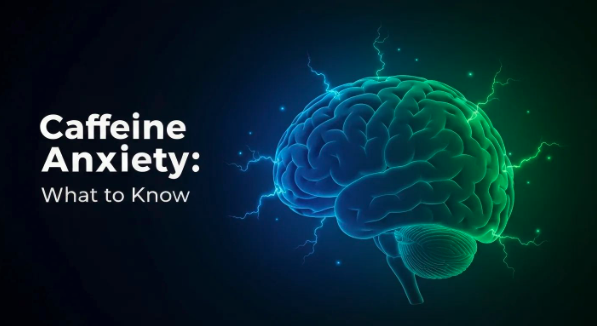The Role of Pets in Supporting Mental Health
How Furry Companions Boost Mental Well-being

Introduction
Pets have long been cherished as beloved companions. In recent years, an increasing body of research has shed light on their profound impact on mental health. From providing emotional support to encouraging physical activity, pets play a pivotal role in enhancing the psychological well-being of their owners.
General Mental Health Benefits of Pets

What are the general benefits of having pets for mental health?
Having pets offers a wealth of mental health benefits that can enhance overall well-being. One of the primary advantages is companionship and emotional support. Pets provide unconditional love, which can help reduce feelings of loneliness and isolation. For many pet owners, especially those living alone, the presence of a pet offers a sense of security and belonging, significantly improving mood and reducing anxiety.
How do pets help reduce stress, anxiety, and depression?
The interaction with pets has been scientifically shown to lower cortisol levels— a hormone associated with stress— and boost the production of serotonin and dopamine, neurotransmitters linked to happiness and emotional stability. Studies indicate that spending time with pets can effectively reduce symptoms of anxiety and depression, helping individuals cope better with emotional challenges. Notably, in workplaces, pets have been shown to reduce work-related stress, increase employee satisfaction, and foster a collaborative atmosphere.
What role does physical activity play in overall well-being?
Owning a pet often encourages physical activity, particularly among dog owners who tend to walk their dogs regularly. This increase in physical activity not only contributes to better physical health but also plays a crucial role in enhancing mental health. Engaging in regular exercise releases endorphins, which can improve mood and promote feelings of well-being. Overall, the combination of companionship, reduced stress levels, and physical activity fosters a healthier lifestyle and a sense of purpose for pet owners.
Supporting Data on Pets and Mental Health

What statistics support the idea that pets positively impact mental health?
Statistics indicate that pets have a significant positive impact on mental health. In a recent survey, 86% of pet owners reported that their pets improve their mental health, and 84% believe their pets have a mostly positive effect on their mental well-being.
Moreover, 62% of pet owners noted that their pets provide a calming presence, while 69% stated that their pets help to reduce stress and anxiety. Almost two-thirds (65%) of pet owners view their pets as true friends and sources of companionship.
What is the prevalence of pet ownership?
The broad prevalence of pet ownership reinforces the potential mental health benefits associated with having a furry companion. Approximately 68% of U.S. households have pets, highlighting their widespread role in contributing to emotional wellness and social support. The significant presence of pets in daily life suggests a valuable relationship that can enhance mental health outcomes for many individuals.
Mechanisms Behind Stress and Anxiety Reduction

Hormonal Influence
Pets, especially dogs, play a significant role in managing stress and anxiety through hormonal changes. Engaging with dogs has been shown to increase levels of oxytocin in both humans and dogs. This hormone fosters feelings of trust, connection, and enhances mood.
Moreover, physical interaction with pets, such as petting or cuddling, can stimulate the release of serotonin and dopamine—neurotransmitters known for stabilizing mood and providing satisfaction. These interactions also lead to lower cortisol levels, the stress hormone, contributing to a reduction in stress and anxiety levels.
Emotional Support and Companionship
The companionship offered by pets is crucial in providing emotional support to their owners. Pets create a non-judgmental presence, allowing individuals to express their feelings and confide in them, which can be incredibly therapeutic. They also help to combat feelings of loneliness, as owning a pet can create opportunities for social interactions, significantly enhancing feelings of acceptance and belonging.
Research indicates that dog owners experience fewer health issues, with studies showing they visit the doctor 8% less than non-dog owners. This trend underscores the positive physical and psychological health benefits linked to pet ownership.
| Mechanism | Effect | Summary of Benefits |
|---|---|---|
| Increased Oxytocin | Trust & Bonding | Fosters secure emotional connections |
| Lowered Cortisol Levels | Reduced Stress | Enhances emotional regulation |
| Dopamine & Serotonin Release | Mood Improvement | Elevates mood and fosters a sense of well-being |
| Social Interaction | Less Loneliness | Creates opportunities for connections |
The multifaceted benefits of pet ownership highlight how these beloved companions can be powerful allies in managing stress and enhancing overall emotional well-being.
Potential Drawbacks of Pet Ownership

What are the negative effects of pets on human mental health?
Pet ownership can negatively impact human mental health in several ways. Research indicates that owning pets, particularly dogs or cats, can be associated with a higher likelihood of depression, especially in vulnerable populations such as unemployed individuals. For instance, these individuals may depend heavily on their pets for emotional support, which can sometimes intensify feelings of isolation or loneliness when faced with the challenges of unemployment.
Emotional attachment to pets may also amplify fears of rejection or loss, leading to worse mental health outcomes. This is especially notable when considering the potential for pet loss, which can bring significant distress to owners. Additionally, factors like aggressive dog behavior or chronic health issues in pets can increase anxiety levels and guilt for owners, creating a complex emotional landscape that detracts from the overall benefits.
While pets are often seen as a means to foster social connections, these relationships can be complex. Negative experiences, such as a pet’s behavioral issues or the burden of care, highlight that not all experiences with pets are beneficial. The intricacies of the human-animal bond warrant a cautious approach, recognizing that emotional support and companionship do not come without potential drawbacks that may exacerbate mental health struggles.
Types of Pets for Mental Health Support

What pets are commonly recommended for people with mental health issues, and why?
Pets commonly recommended for individuals with mental health issues include dogs, cats, llamas, alpacas, and small animals such as rabbits and guinea pigs.
Dogs and Cats: These pets are often highlighted for their ability to be trained as emotional support or service animals. They provide substantial comfort during anxiety attacks or critical mental health episodes.
Llamas and Alpacas: Valued for their gentle and empathetic nature, llamas and alpacas can offer serenity and companionship, making them great for emotional support.
Small Animals: Rabbits and guinea pigs are excellent choices as well. They are known to help lower blood pressure while boosting self-esteem. Their manageable size and gentle demeanor make them appealing for therapy settings, especially with children.
The presence of an emotional support animal promotes feelings of calm and confidence, particularly in stressful situations.
Unique benefits of different animals
| Animal | Unique Benefits | Ideal For |
|---|---|---|
| Dogs | Trained for emotional support, increase physical activity | Anxiety, loneliness, depression |
| Cats | Independent yet affectionate, lower stress levels | Companionship, emotional stability |
| Llamas | Gentle nature, non-threatening presence | Social anxiety, emotional comfort |
| Alpacas | Calm demeanor promotes relaxation | Stress relief, building trust |
| Rabbits | Lower maintenance, nurturing behavior | Children, first-time pet owners |
| Guinea Pigs | Social and interactive, engage with owners visually | Companion for emotional support and playfulness |
Emotional support animals differ from service animals as they provide comfort rather than performing specific tasks related to disabilities. To qualify one, documentation from a licensed mental health professional is needed.
Stories and Anecdotes of Pets Improving Lives
How do pets contribute to personal well-being and happiness?
Anecdotal evidence strongly supports the positive role that pets play in their owners' lives. For instance, therapy dogs visiting hospitals have been reported to significantly reduce patients' stress and anxiety levels, offering comfort in high-pressure situations. Similarly, children diagnosed with ADHD frequently show improvements in their social skills when engaging with pets, as the interactions foster a safe space for communication and connection.
The experiences of autistic individuals further illustrate this. Many report enhanced confidence and a sense of comfort when accompanied by animals, particularly in sensory-overloading environments. These personal accounts resonate with the broader findings from research, presenting a compelling narrative of the emotional support and mental health benefits pets provide.
Across these stories, the bond between humans and animals emerges as a source of joy, purpose, and companionship, highlighting the profound impact pets can have on overall mental well-being. Observations from pet owners frequently underscore how their furry companions offer unconditional love, drawing attention to the essential role pets play in enhancing happiness and reducing feelings of loneliness.
Conclusion
Throughout research and real-life stories, it becomes clear that pets make significant contributions to mental well-being. While they may pose some challenges, the benefits of their unconditional love, social facilitation, and physical engagement often prevail, enhancing quality of life for many. Understanding these impacts equips potential pet owners with the knowledge to make informed decisions about the integration of pets into their lives for emotional support.
References
- Pets and mental health - Mental Health Foundation
- The Power of Pets | NIH News in Health
- 5 Ways Pets Help With Stress and Mental Health
- How Pets Impact Our Mental Health | HABRI
- Health benefits of pets: How your furry friend improves your mental ...
- Americans Note Overwhelming Positive Mental Health Impact of ...
- Americans' Pets Offer Mental Health Support to Their Owners, 1 out ...
- The power of support from companion animals for people living with ...
- How Pets Can Help Us Maintain Mental Health - NAMI California
More Resources
A team ready to start your journey.
Get in touch — today.
We are a safe space – a haven for exceptional individuals to receive discreet, personalized, in-person treatment and care.
.avif)

.webp)








